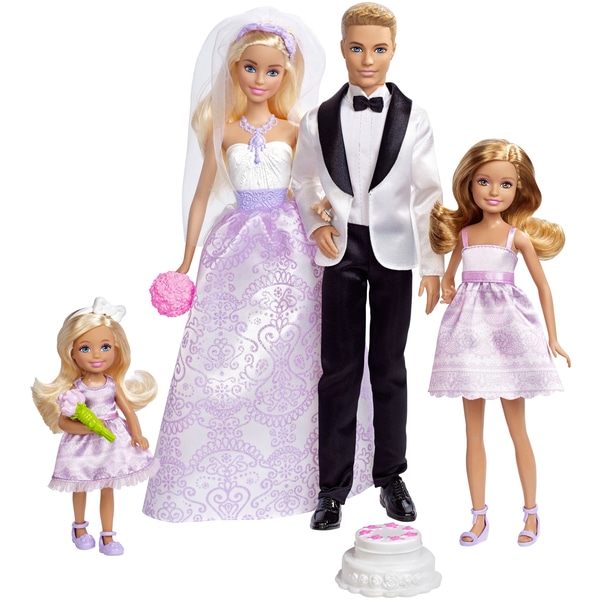Lego has also astutely catered to local tastes. This year the firm launched three sets specifically for China, the first time it has done so for any country. Fans were delighted at the attention to cultural detail. One was a Chinese New Year’s Eve dinner kit, with tiny red envelopes and chunlian, lucky couplets on banners pasted around doorways. A dragon boat race set included a sticky-rice dumpling, a popular festival snack. The high-quality kits are pricey, costing up to 700 yuan ($100) apiece.
乐高也敏锐地迎合了中国家长的口味。今年,该公司专门针对中国推出了三套积木,这是该公司首次针对国家推出产品。粉丝们对文化细节的关注感到高兴。其中一个是除夕晚餐套装,里面有小红包和春联(春联是贴在门口横幅上的幸运对联)。龙舟比赛套装里面包括一个糯米团(一种受欢迎的节日小吃)。这些高质量的套装价格不菲,每件售价高达700元人民币(合100美元)。
With Barbie, Mattel tried to localise in the wrong way. A former Chinese manager at the American company calls its promotion of a line of cheaper, flimsier dolls “arrogant”. Because no effort was put into making her locally relevant, Barbie held none of her usual aspirational appeal, even for spendthrift Chinese. In 2009 Mattel opened the world’s largest Barbie shop on a luxury shopping street in central Shanghai, stuffed with 800 dolls. The six-floor pink colossus confused Chinese parents by offering mothers a spa, designer fashion and “Barbietini” cocktails, and their daughters more age-appropriate attractions. It was a flop and shut two years later.
而美泰针对芭比娃娃的本地化方式则是错误的。这家美国公司的一名前中国经理将该公司推广的一系列更便宜、更轻薄的玩偶称为“傲慢”。由于没有努力让芭比在当地变得有影响力,芭比没有像往常那样吸引人,即使对挥金如土的中国人也是如此。2009年,美泰在上海市中心的一条豪华购物街上开设了全球最大的芭比专卖店,店里塞满了800个芭比娃娃。这家六层楼高的粉色巨型酒店为妈妈们提供水疗、设计师设计的时装和“芭比尼”鸡尾酒,以及对女儿更有吸引力的东西,这让中国家长感到困惑。这个举措很失败,并在两年后闭店。

It is hard to convince prudish parents of the creative merits of frivolous dolls, and grown-up Chinese collectors prefer short and chubby Molly, a popular local poppet. The Chinese market for construction toys is six times bigger than for dolls. In Mr Zhu’s words, “there is no art to a Barbie”. Tellingly, Mattel’s most successful brand in China is a maker of educational baby toys, Fisher-Price, with a market share of 1.1%, according to Euromonitor, a data provider. Barbie, with 0.3%, comes a lowly 31st. By contrast, Lego’s 4.5% share puts it firmly in first place: a fortification that will serve it well, as China’s market for toys and video games, worth $45bn, overtakes America’s in the next few years.
很难让一本正经的家长相信不实用玩偶的创意价值,而成年的中国收藏者更喜欢矮胖的莫莉,这是一个受欢迎的本地宠物。中国建筑玩具市场的规模是玩偶市场的六倍。用朱先生的话来说,“芭比没有艺术可言”。数据提供商欧睿信息咨询的数据显示,美泰在中国最成功的品牌是教育类婴儿玩具制造商Fisher-Price,市场份额为1.1%。芭比娃娃只有0.3%,排在第31位。相比之下,乐高4.5%的市场份额使其稳居首位:这一防御措施将很好地服务于乐高,因为未来几年,中国价值450亿美元的玩具和视频游戏市场将超过美国。













